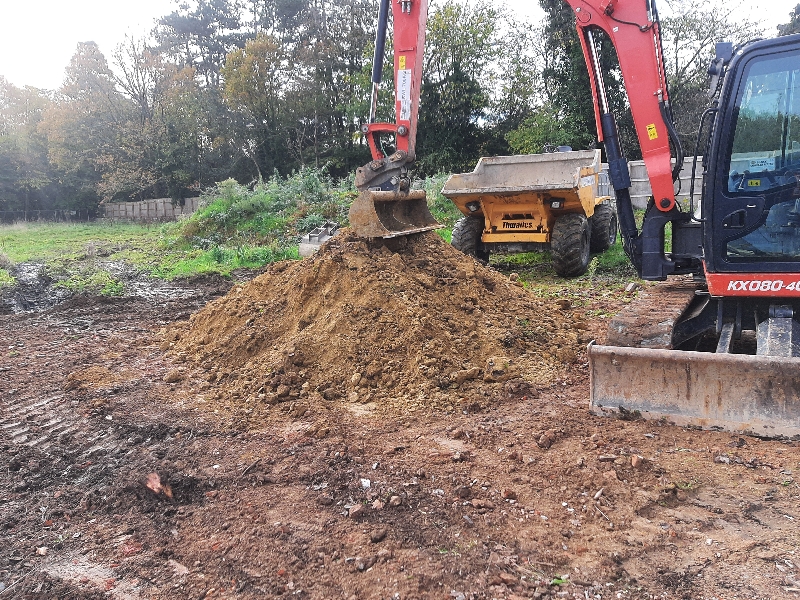PROJECT EXAMPLE: Not just knotweed
It’s not uncommon to find more than knotweed on sites that we’re asked to survey. On this contract we also found Field horsetail, Bamboo, Rhododendron and wild garlic. This was a two-part project providing a watching brief service and knotweed and horsetail excavation.
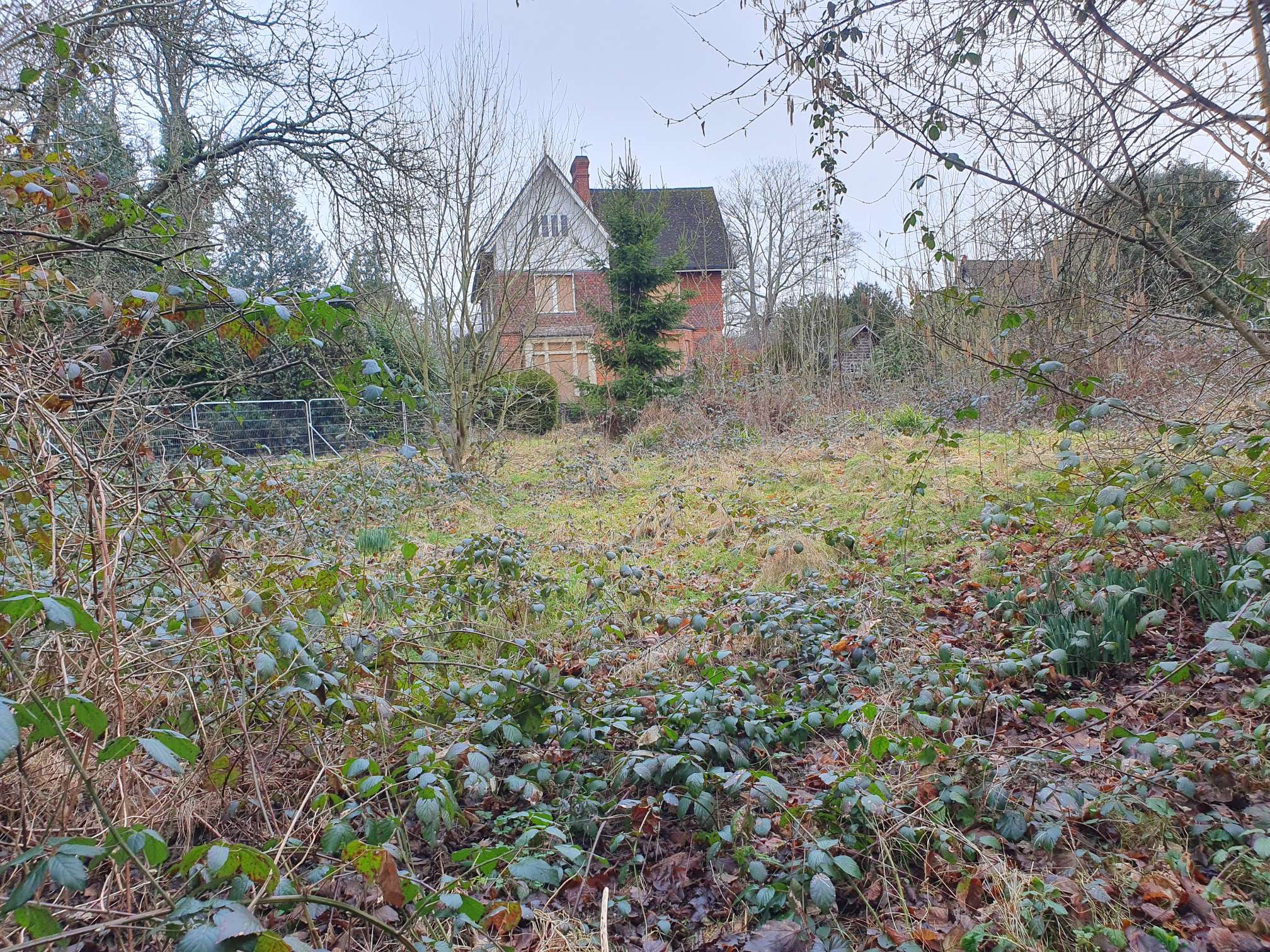
THE SITE
The site consisted of two residential properties with large gardens, one of the properties was to be retained, the other was due for demolition. The rear garden of the property to be retained was heavily vegetated including trees, shrubs, wild garlic, Rhododendron, Field horsetail and Bamboo, it also contained an old swimming pool and various outbuildings.
Due to the density of the vegetation we cut access paths to allow for a full survey to be carried out. Large areas of Japanese knotweed and Field horsetail were present on the site.
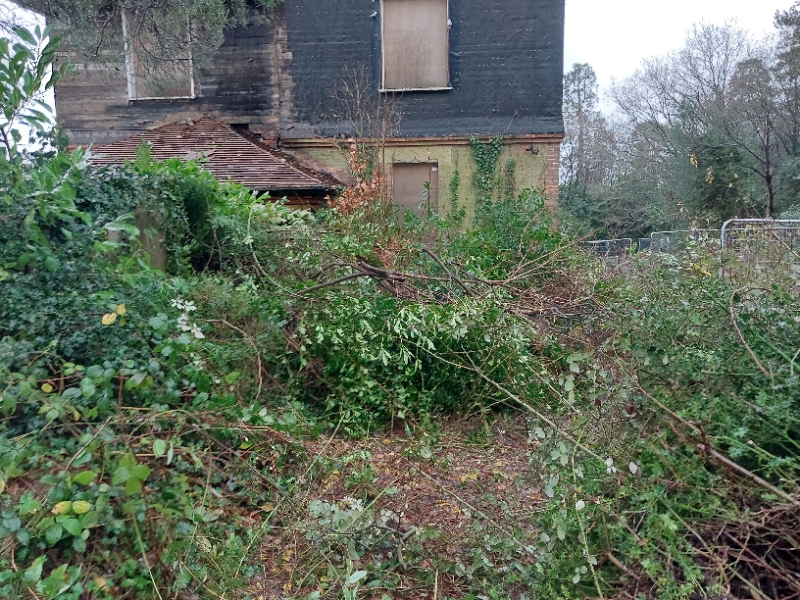
THE PROBLEM
In December 2022 we carried out a full site survey. The main target plants identified onsite were Japanese knotweed and Field horsetail. Though other invasive plants were also present, knotweed and horsetail were the main species that needed to be removed.
The knotweed was located in various areas of dense vegetation and in an area of mature trees that were adjacent to a busy public footpath. It was mature with evidence of large stems from previous years’ growth. There was also active semi-mature growth.
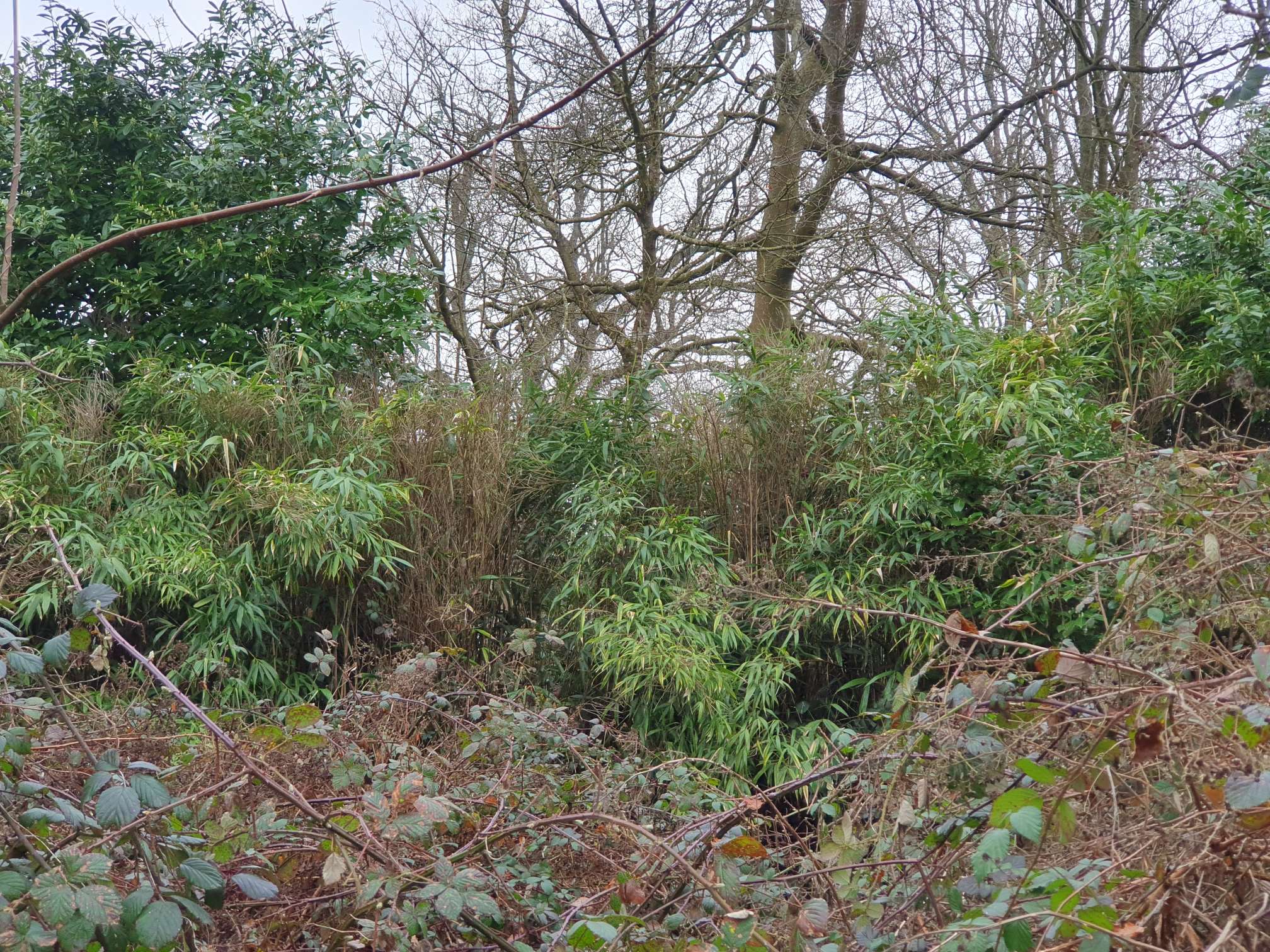
Area of bamboo growing at the rear of the property
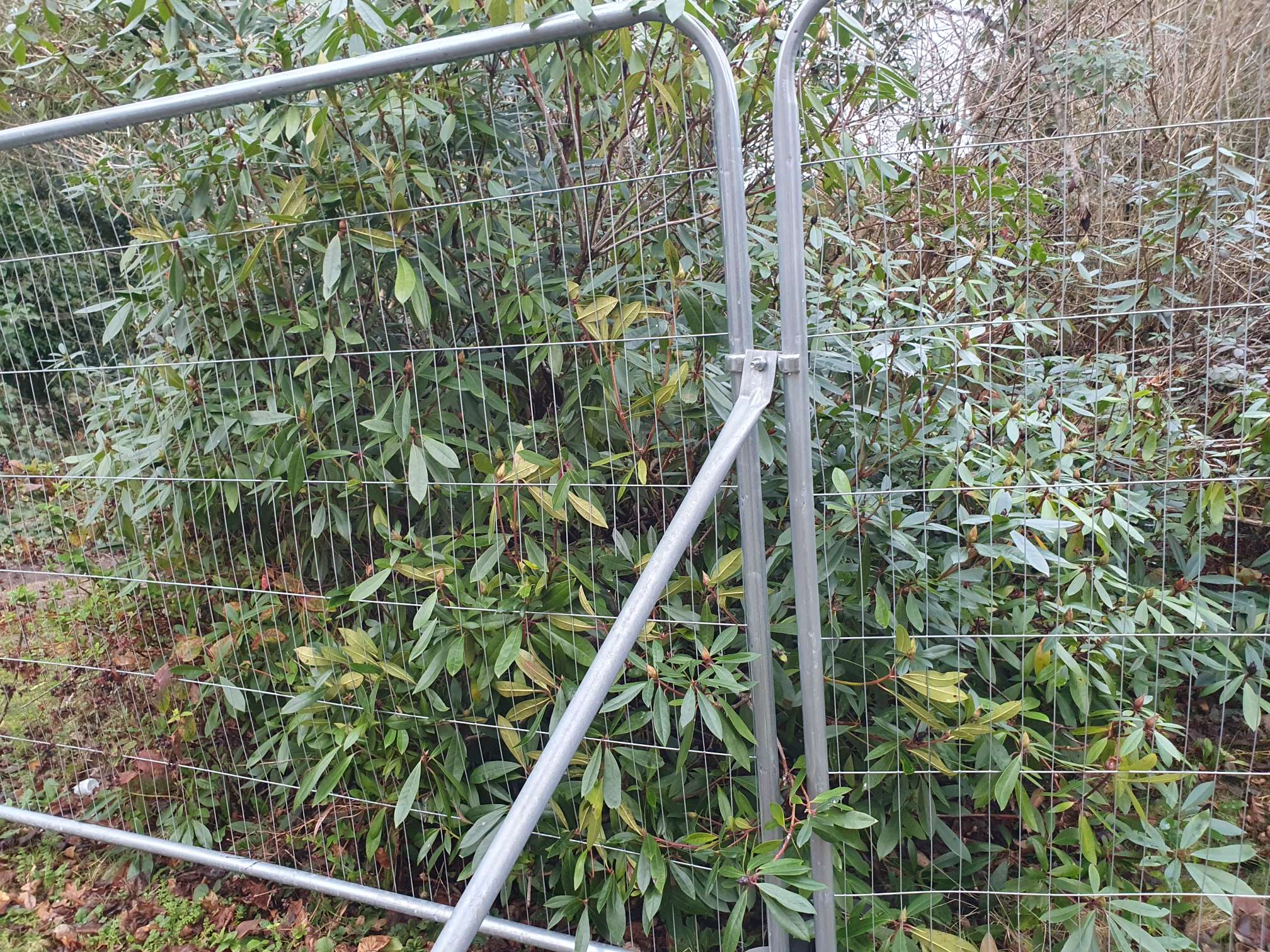
Area of Rhododendron
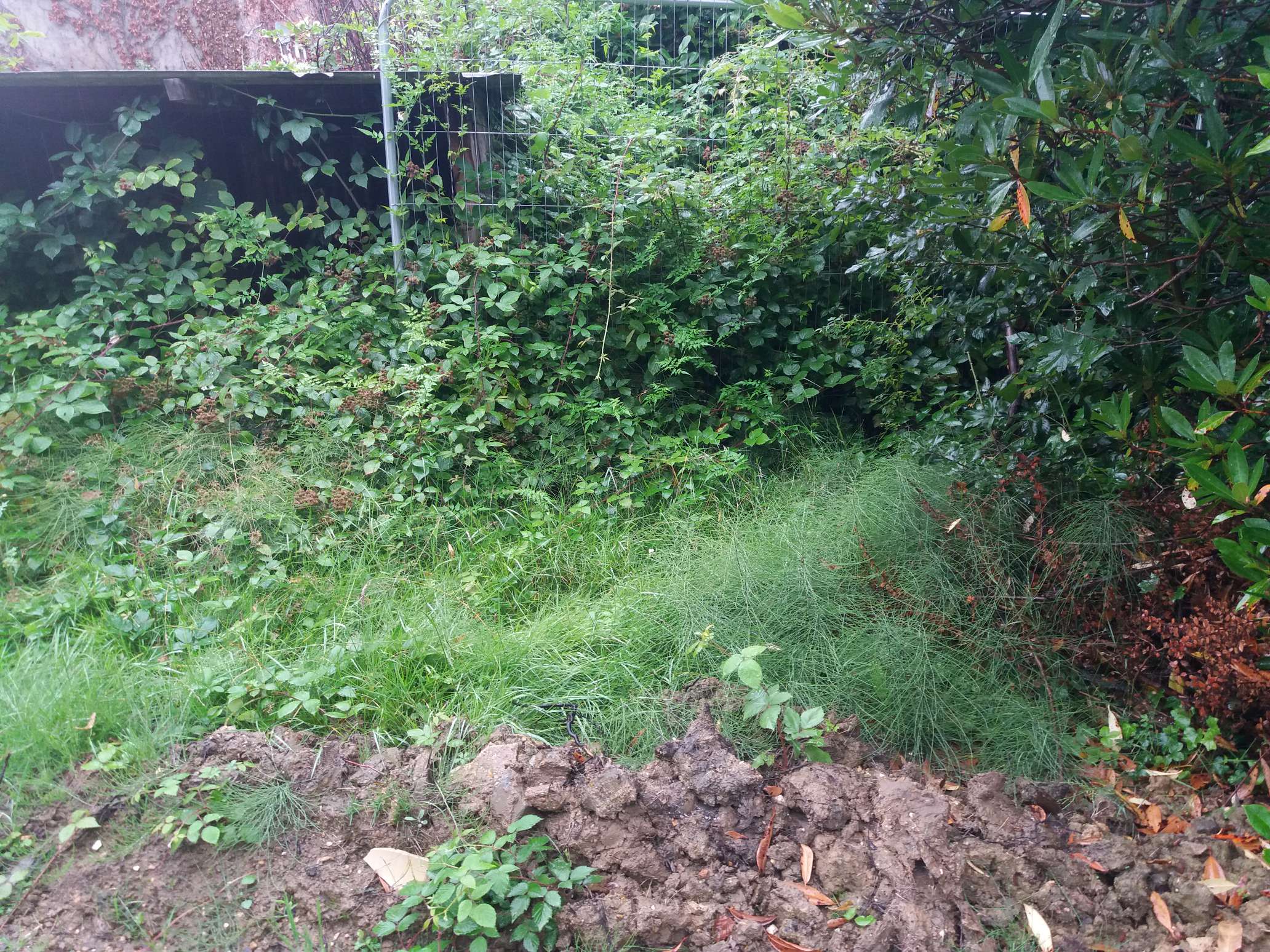
Area of Field horsetail
Field horsetail was identified amongst other weeds and shrub vegetation, also along a vegetated bank that formed a terrace extending into the parking area at the end of the garage. Horsetail can cause serious problems for residential properties and commercial builds if left uncontrolled. It was therefore important to factor in removal by excavation at the same time as knotweed removal.
THE WORKS
As both invasive plants would be disturbed during development of the site, full excavation was the best option. Initial works included cutting and removal of vegetation to enable access of machinery. All cut vegetation was removed from site.
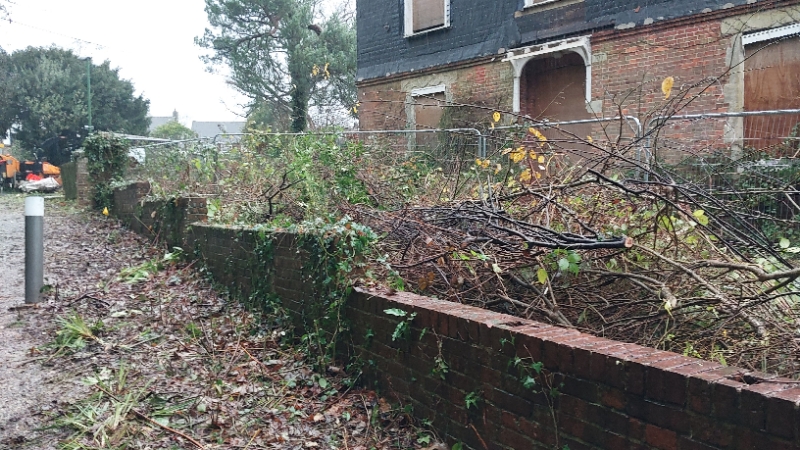
This was a two-part contract, part one being a Watching Brief service to oversee works carried out by tree surgeons conducting enabling work, and we completed full excavation of the knotweed on site with all waste relocated to a stockpile and then removed to landfill.
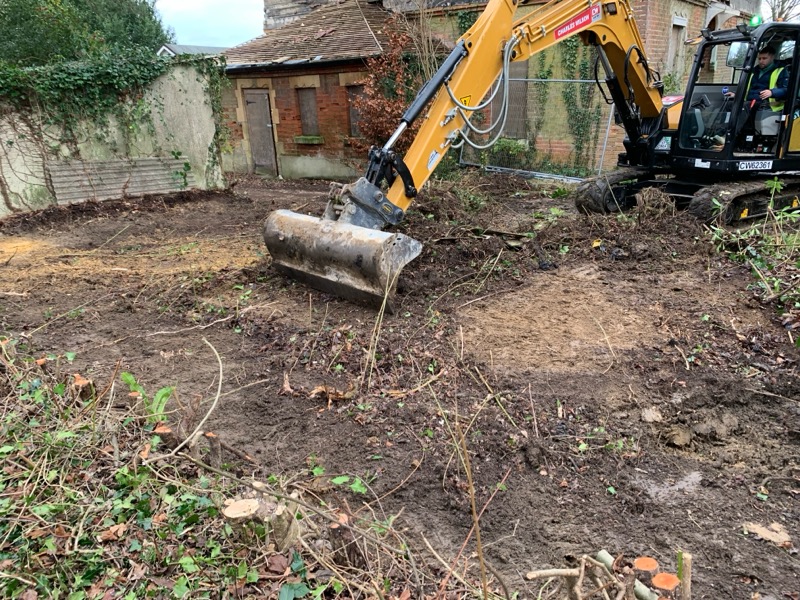
To prevent any horsetail regrowth on the completed site coming through soft landscaped areas, and possibly through porous macadam surfaces we needed to remove the majority of visible above ground growth, and excavate the underground rhizomes from the most heavily infested areas. Any regrowth would be controlled with monitoring and herbicide treatments.
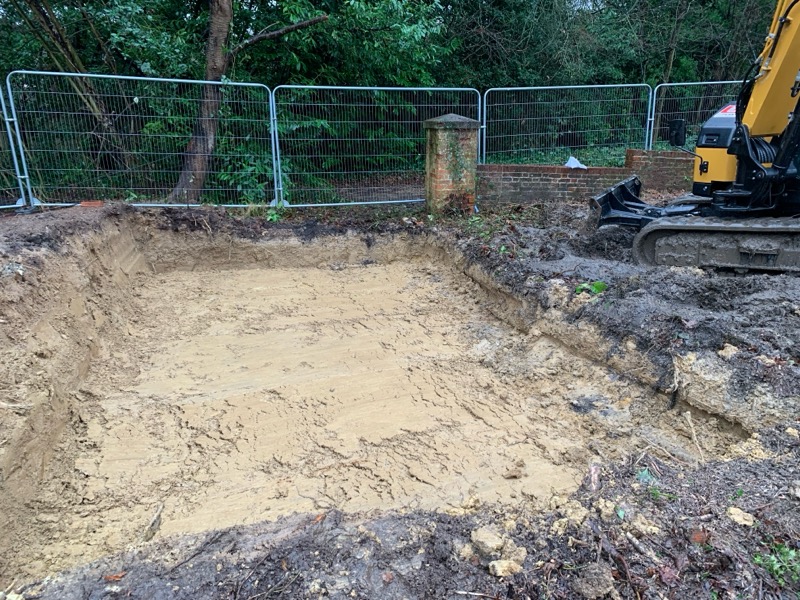
Further works were then required in 2024 to remove an additional knotweed stand identified at our monitoring visit. Full excavation and removal of knotweed with all waste relocated to a stockpile and removed to landfill. Imported topsoil was used to backfill the excavated void.
We provide a range of excavation options to suit the site and your project needs. To find out more or ask the team a question get in touch.


